Spring Up to Clean Up TODAY



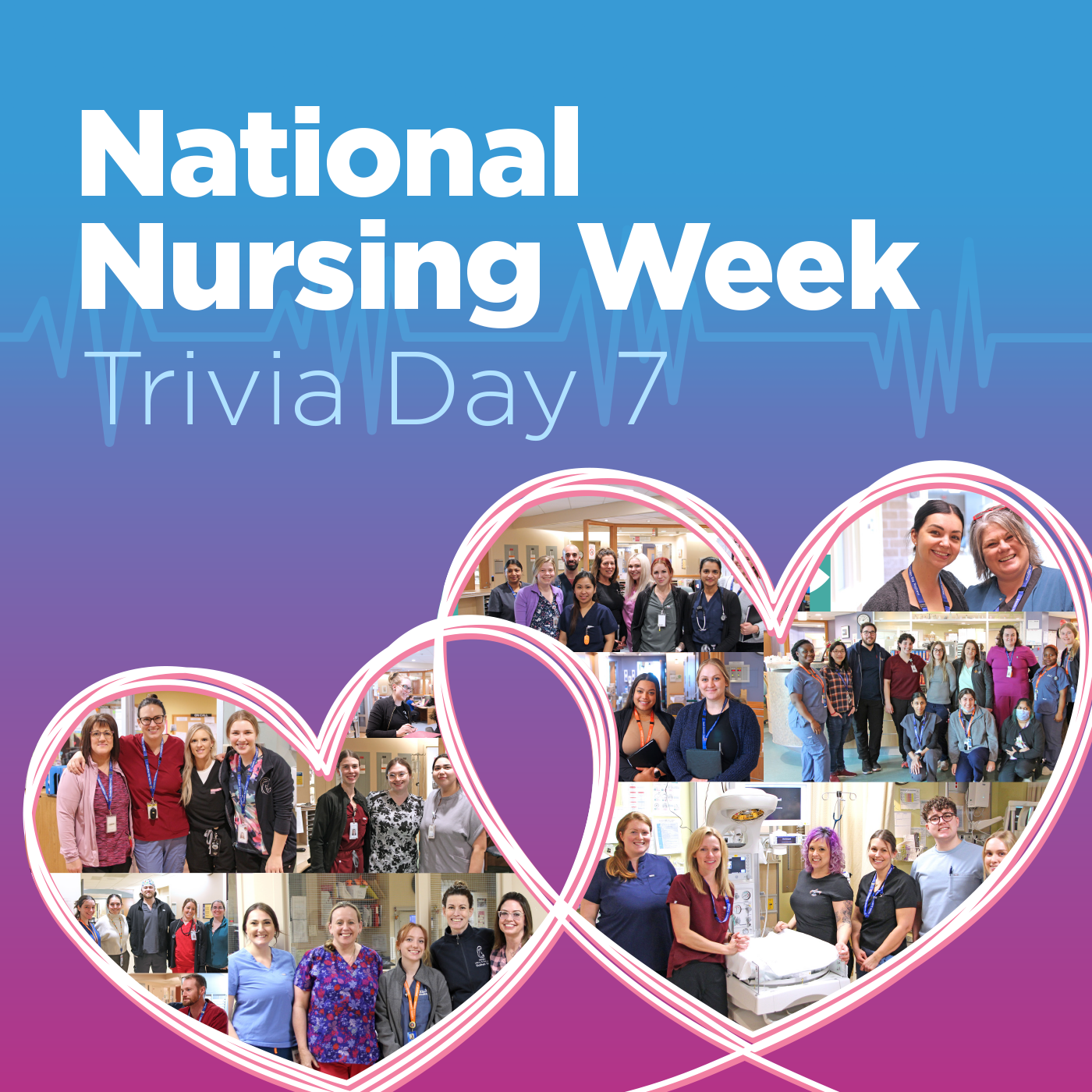
Click HERE to complete today’s National Nursing Week Trivia Questions.
Each submission will be entered into a draw to win prizes! Winners will be announced on the Daily Informed Newsletter during National Nursing Week (May 12-18).
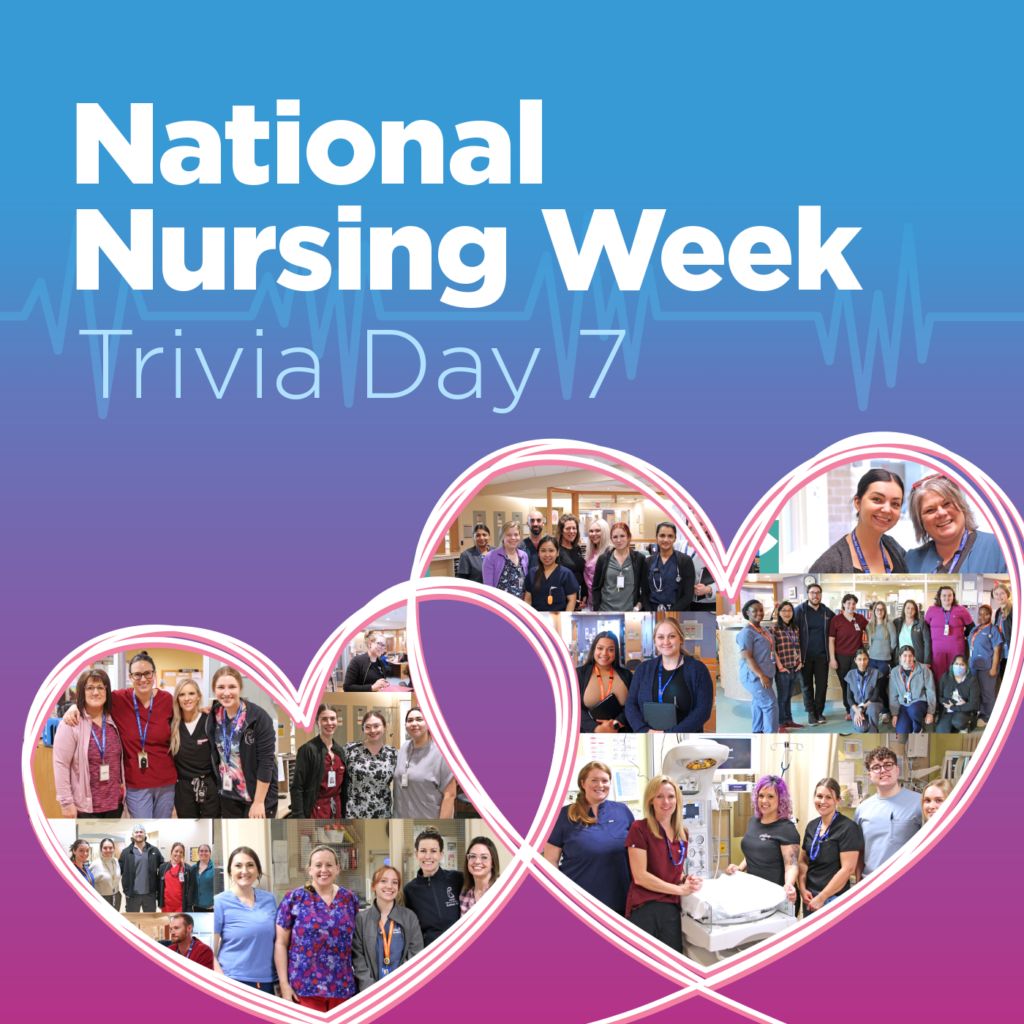
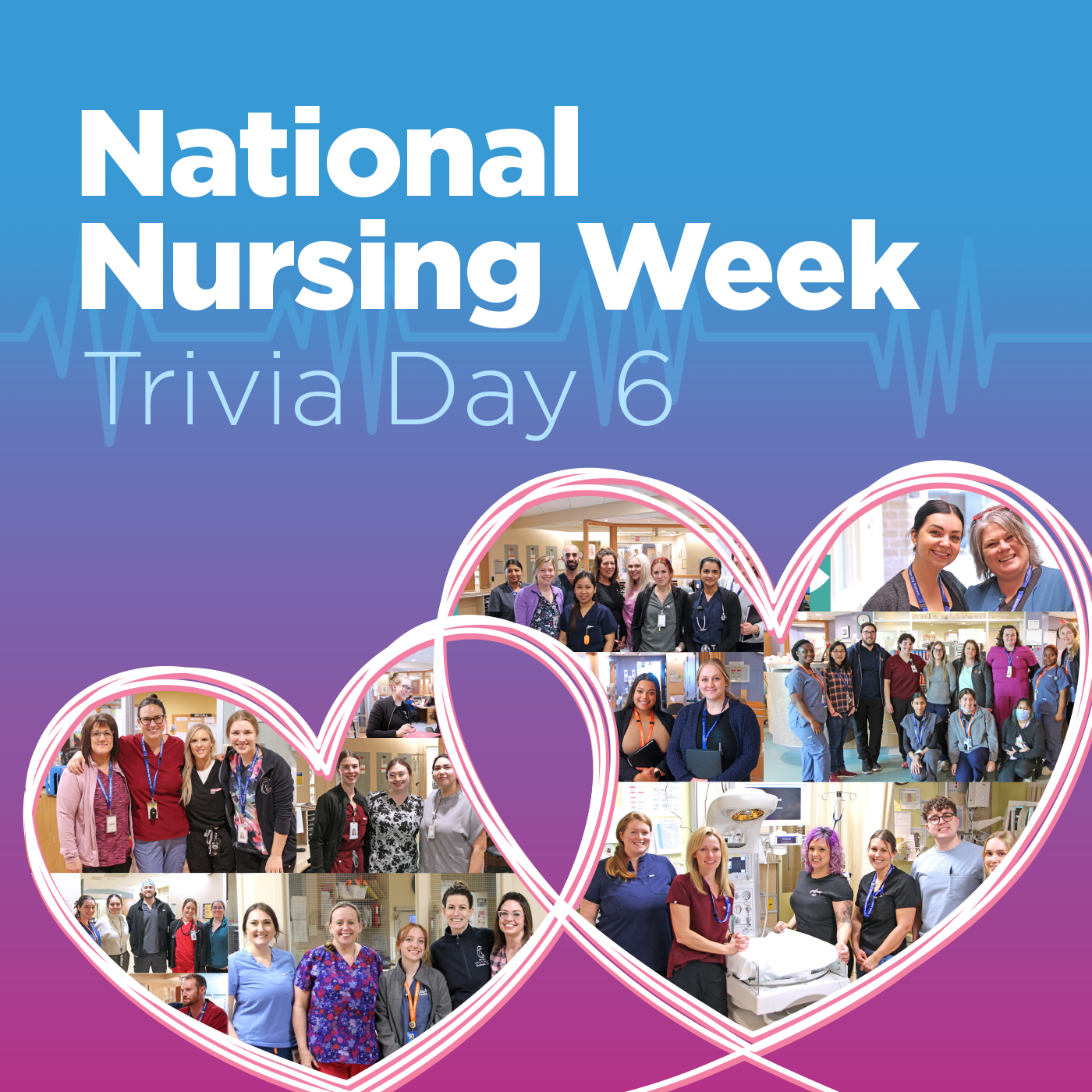
Click HERE to complete today’s National Nursing Week Trivia Questions.
Each submission will be entered into a draw to win prizes! Winners will be announced on the Daily Informed Newsletter during National Nursing Week (May 12-18).
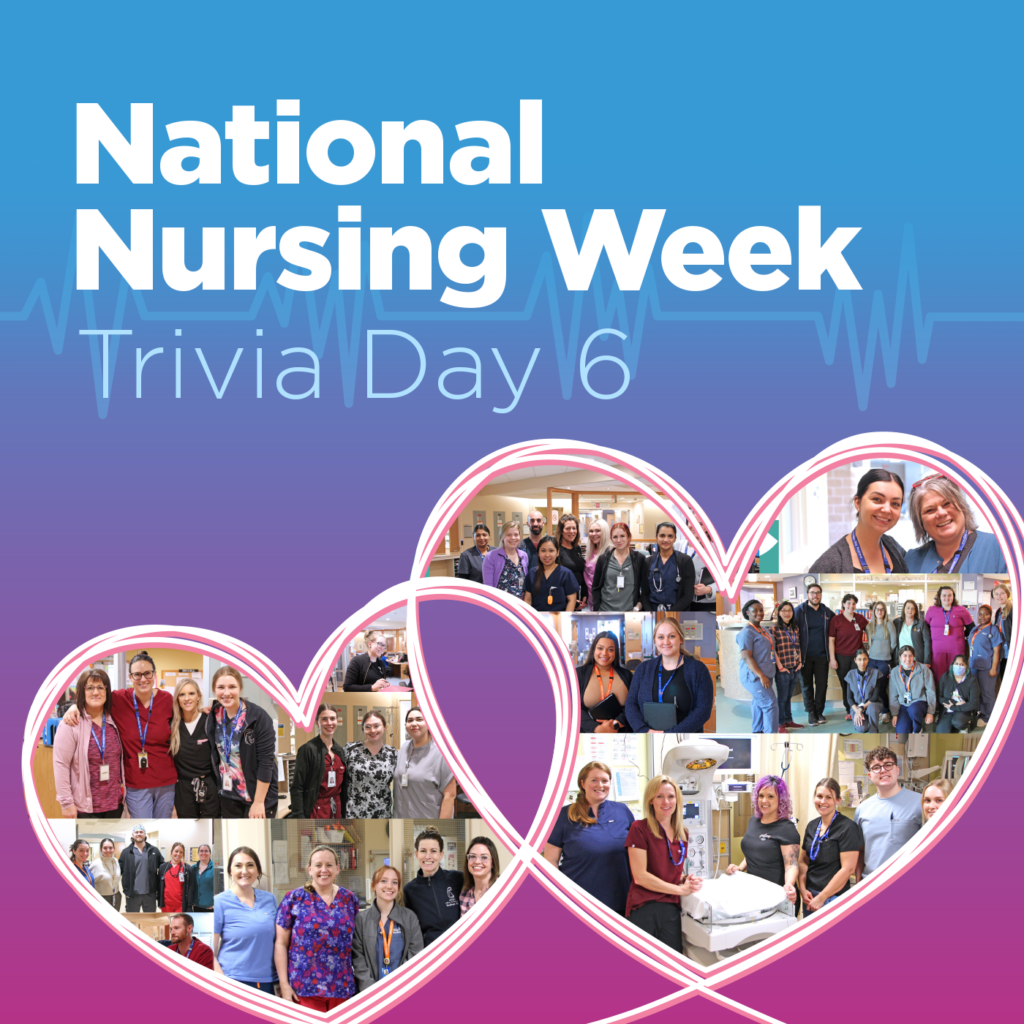
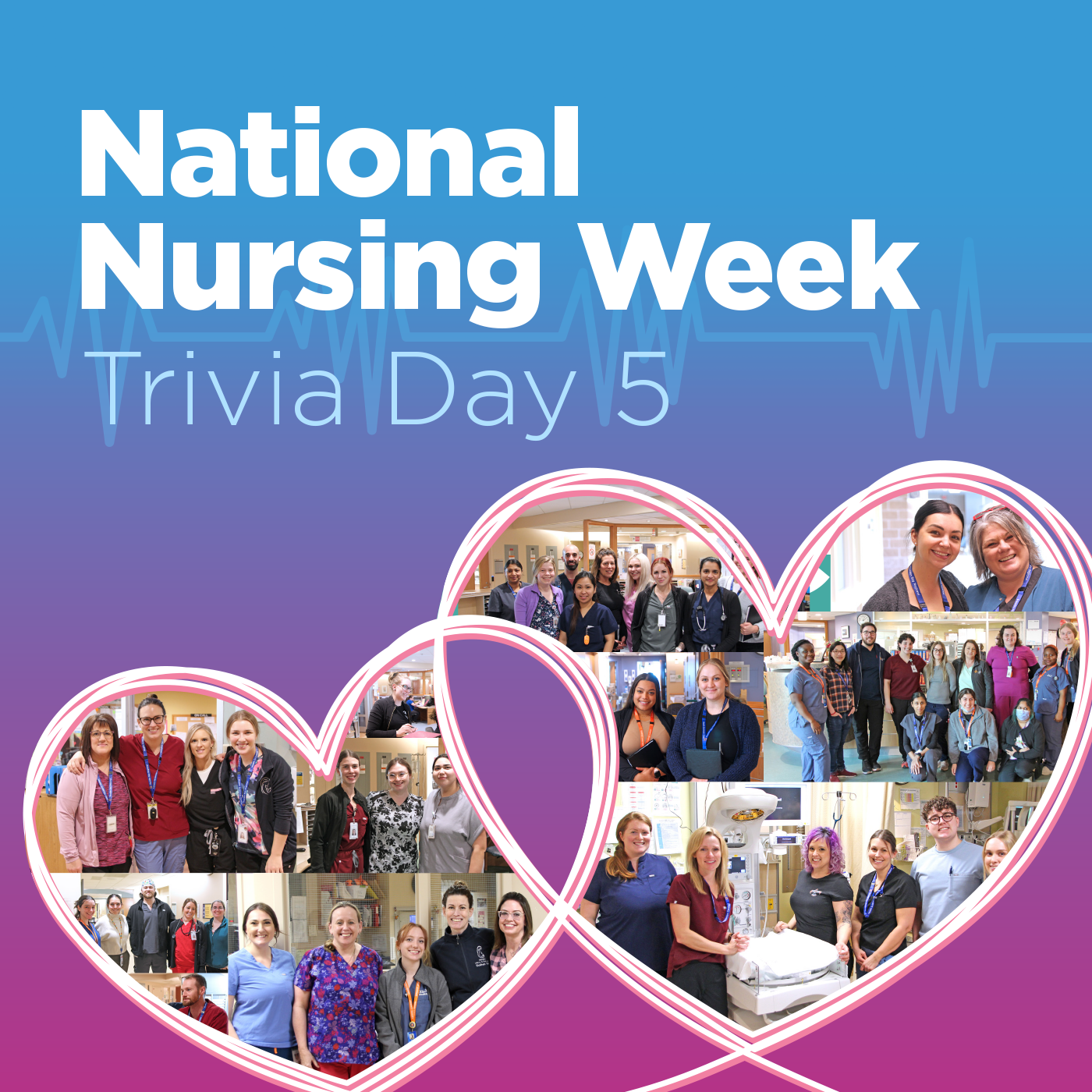
Click HERE to complete today’s National Nursing Week Trivia Questions.
Each submission will be entered into a draw to win prizes! Winners will be announced on the Daily Informed Newsletter during National Nursing Week (May 12-18).
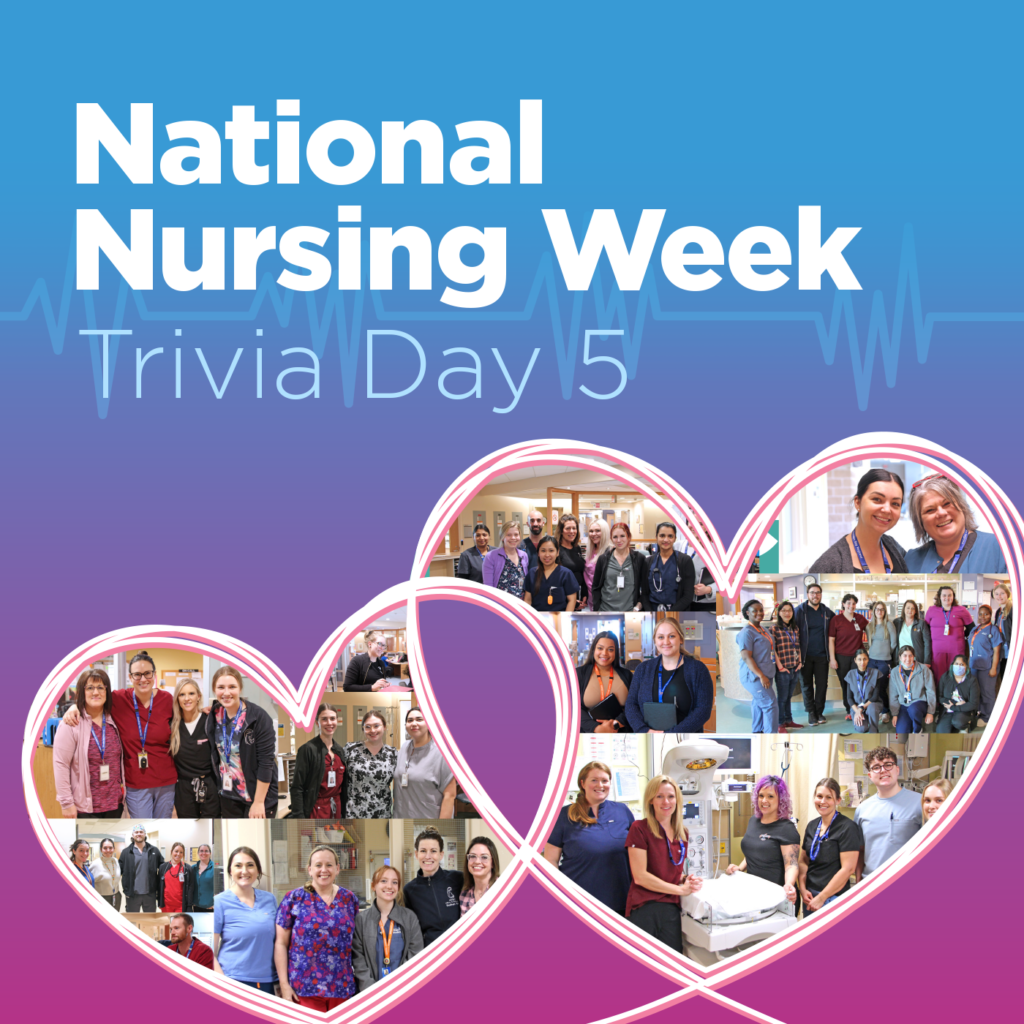
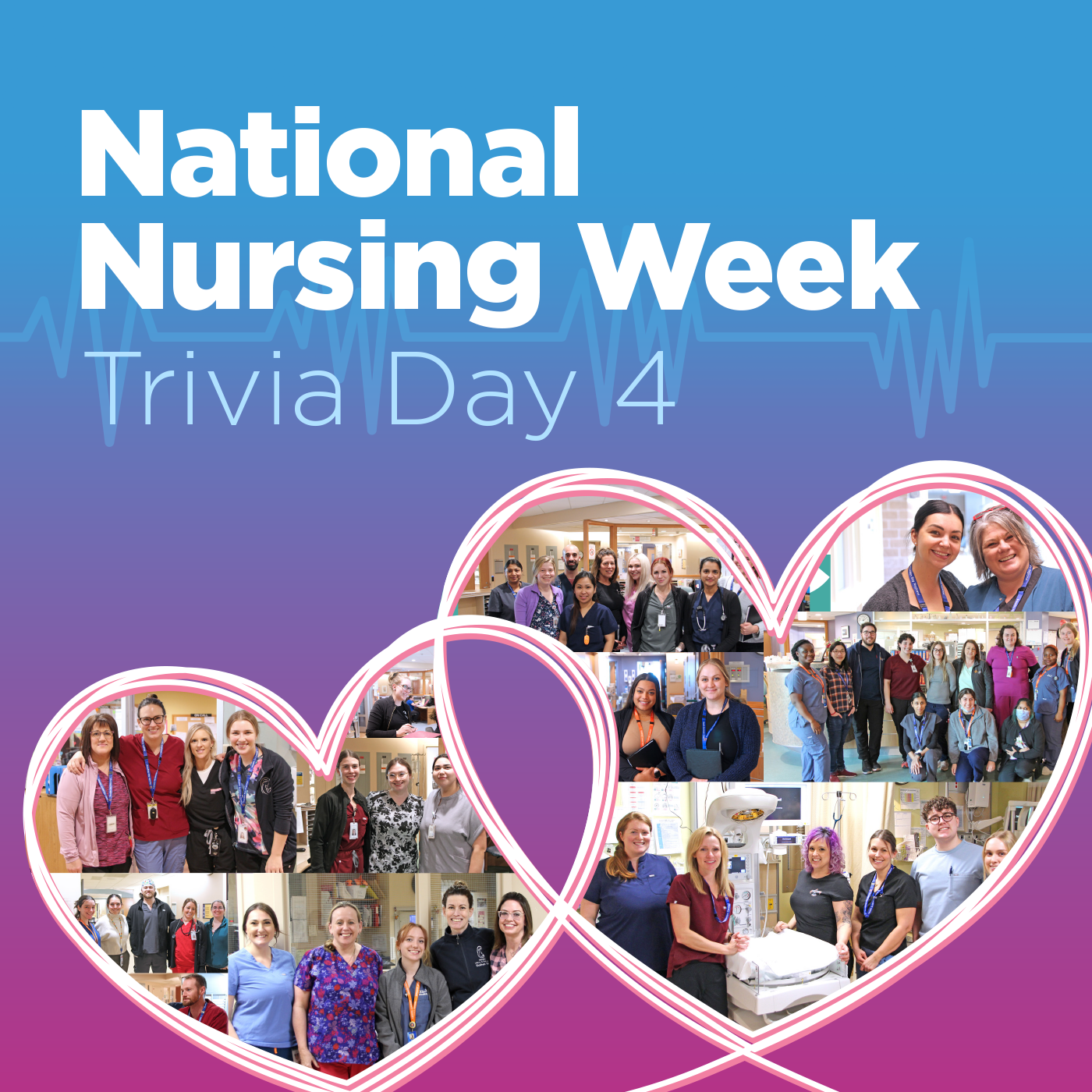
Click HERE to complete today’s National Nursing Week Trivia Questions.
Each submission will be entered into a draw to win prizes! Winners will be announced on the Daily Informed Newsletter during National Nursing Week (May 12-18).
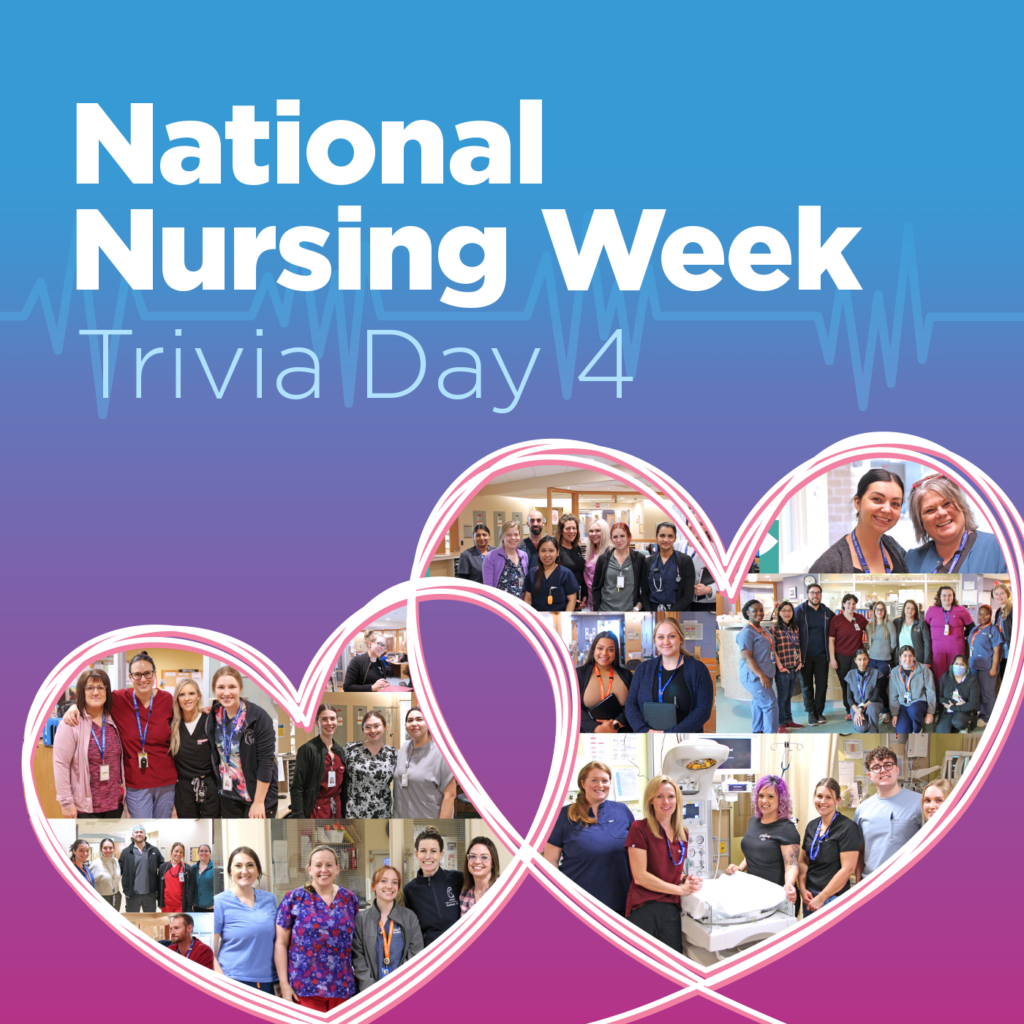
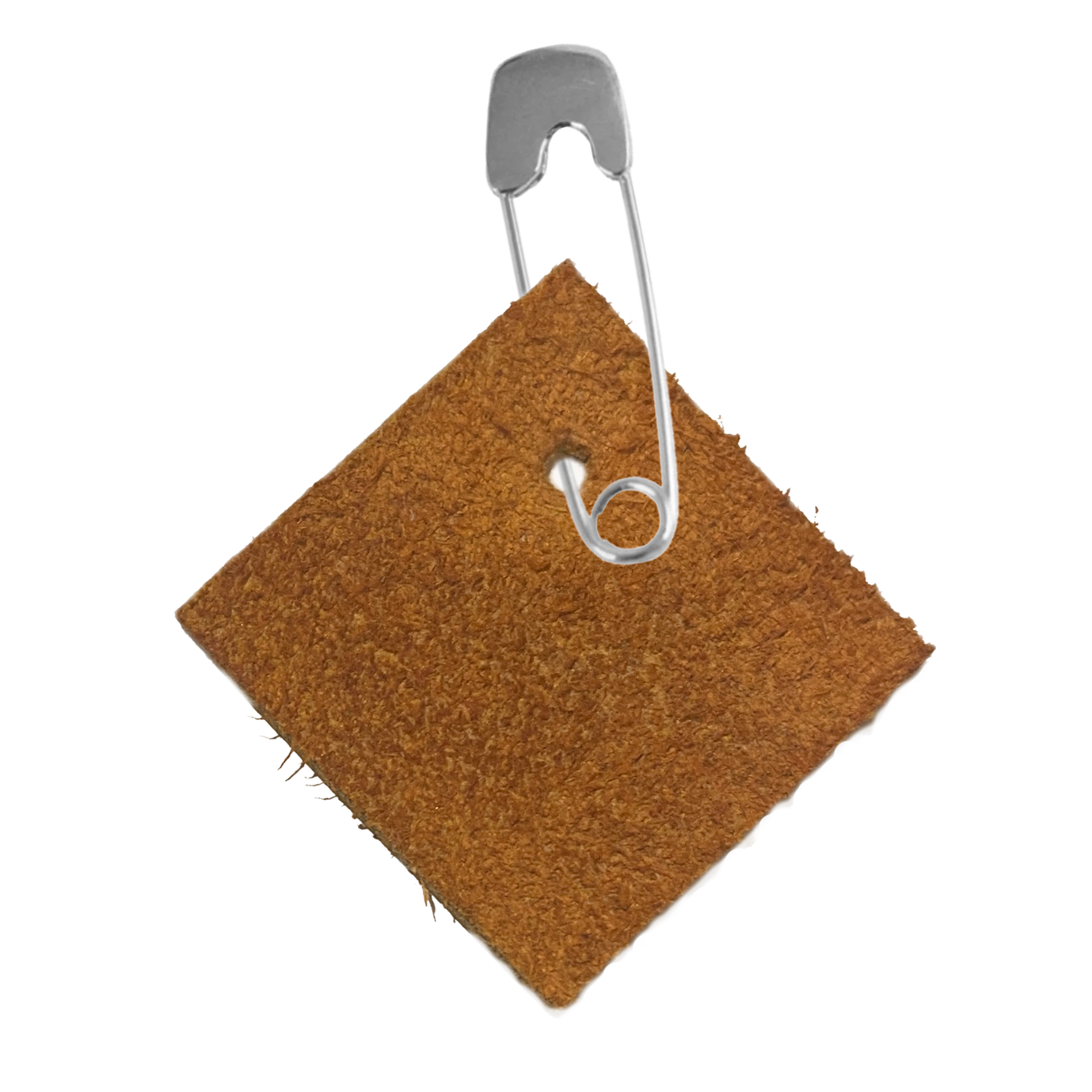
Moose Hide Campaign Day is a day of ceremony where all Canadians are called to join together to take a stand against violence towards women and children and to take practical steps for our collective journey of reconciliation.
The Moose Hide Campaign recognizes that all forms of violence are unacceptable, regardless of gender. Yet, there continues to be a disproportionate number of women who are victims. The Moose Hide Campaign recognizes the importance of engaging men and boys in addressing this issue. We also know that “shame and blame” isn’t the answer.
The Moose Hide Campaign began as a BC-born Indigenous-led grassroots movement to engage men and boys in ending violence towards women and children. It has since grown into a nationwide movement of Indigenous and non-Indigenous Canadians from local communities, First Nations, governments, schools, colleges/universities, police forces and many other organizations – all committed to taking action to end this violence.
Since the Campaign began over 10 years ago along the Highway of Tears, thousands of communities and organizations across Canada have held Moose Hide Campaign events and joined the annual Moose Hide Campaign Day ceremony and fast. People of all ages, genders and backgrounds are invited to take part in Moose Hide Campaign activities.
The Campaign is grounded in Indigenous ceremony and traditional ways of learning and healing. A cornerstone of the Moose Hide Campaign is the moose hide pin. Wearing the pin signifies your commitment to honour, respect, and protect the women and children in your life and speak out against gender-based and domestic violence. To date, over three million moose hide pins have been distributed free of charge to communities, schools, and workplaces across Canada.
Moose hide is a symbol of taking a stand against violence and undoing the effects of Residential Schools.
Co-founders Paul and his daughter Raven were hunting moose to help feed their family for the winter and provide for cultural purposes. This was a grounding tradition on their land that passed knowledge from one generation to the other, something the residential school system tried to erase.
They felt connected to their surroundings within their Carrier territory along the Highway of Tears in Northern BC, where so many women have gone missing or been murdered. And they were inspired.
Paul knew his young daughter deserved a life of dignity and respect free from violence.
And so it began… a cultural tradition of generational teachings became a symbol of a responsible, meaningful pledge.
A commitment to take action in honour of women and children everywhere, and a symbol of honouring Indigenous medicine and belonging that is here to stay.
For more information, click here.
we are medicine is a self-paced, five-part learning journey to discover how you are medicine to end violence in your home, your community, and your workplace. This 90-minute training video will give you a new perspective on violence in Canada. Content is lead by Indigenous Wisdom Carriers from across Turtle Island and the Moose Hide Campaign. Click here to learn more.
The issue of missing and murdered Indigenous women, girls, and two-spirit people (MMIWG2S+) has significant implications for health care. Health care providers must address this crisis and create a culturally safe system for Indigenous peoples. The Truth and Reconciliation Commission’s Call to Action 41 urged the Canadian government to investigate MMIWG2S+ cases, leading to a National Inquiry that produced a Final Report in June 2019 with 231 Calls for Justice aimed at ending colonial violence. In 2024, the we released the inaugural report on our response to the TRC’s 94 Calls to Action, focusing on health care initiatives and outlining partnerships and progress on five specific actions.
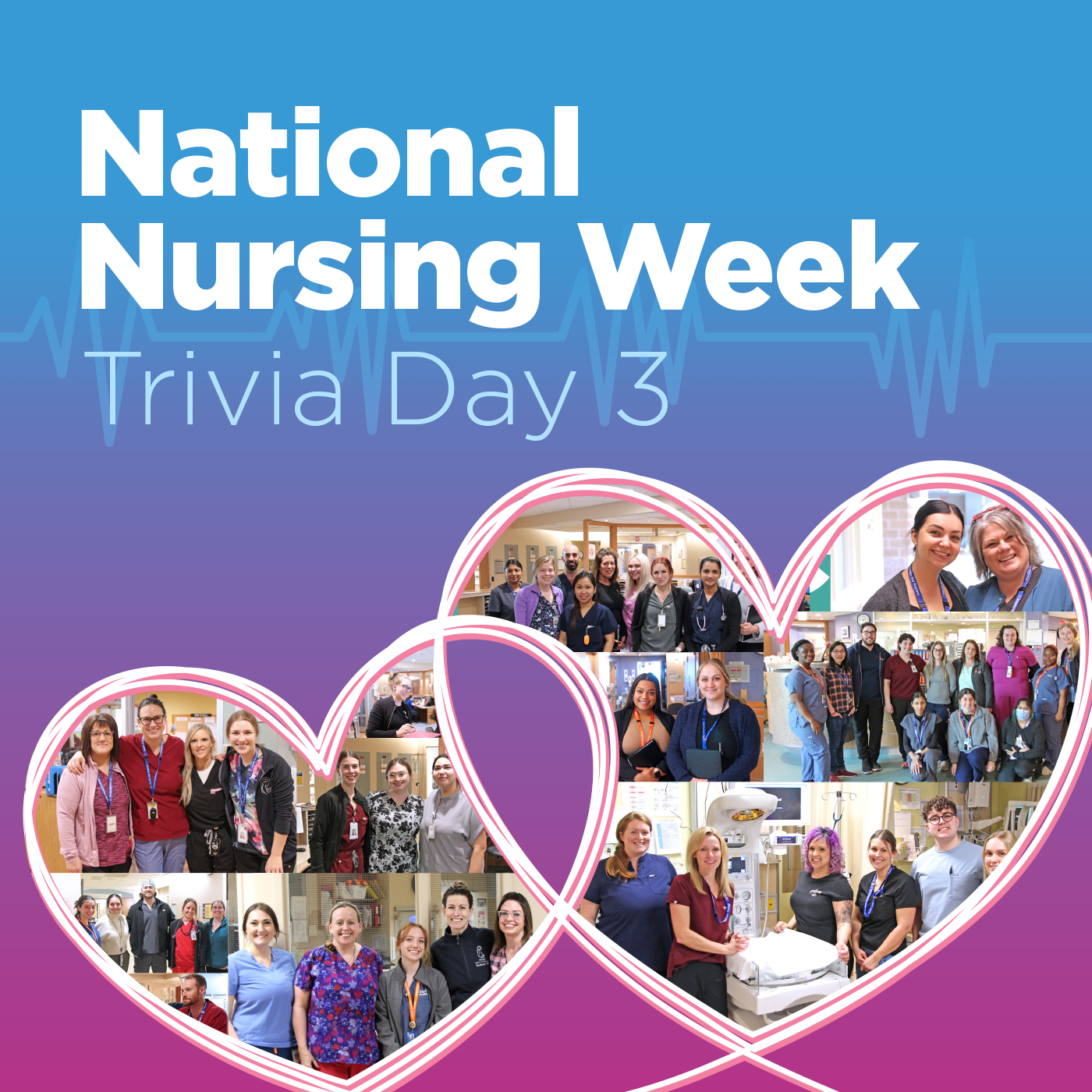
Click HERE to complete today’s National Nursing Week Trivia Questions.
Each submission will be entered into a draw to win prizes! Winners will be announced on the Daily Informed Newsletter during National Nursing Week (May 12-18).
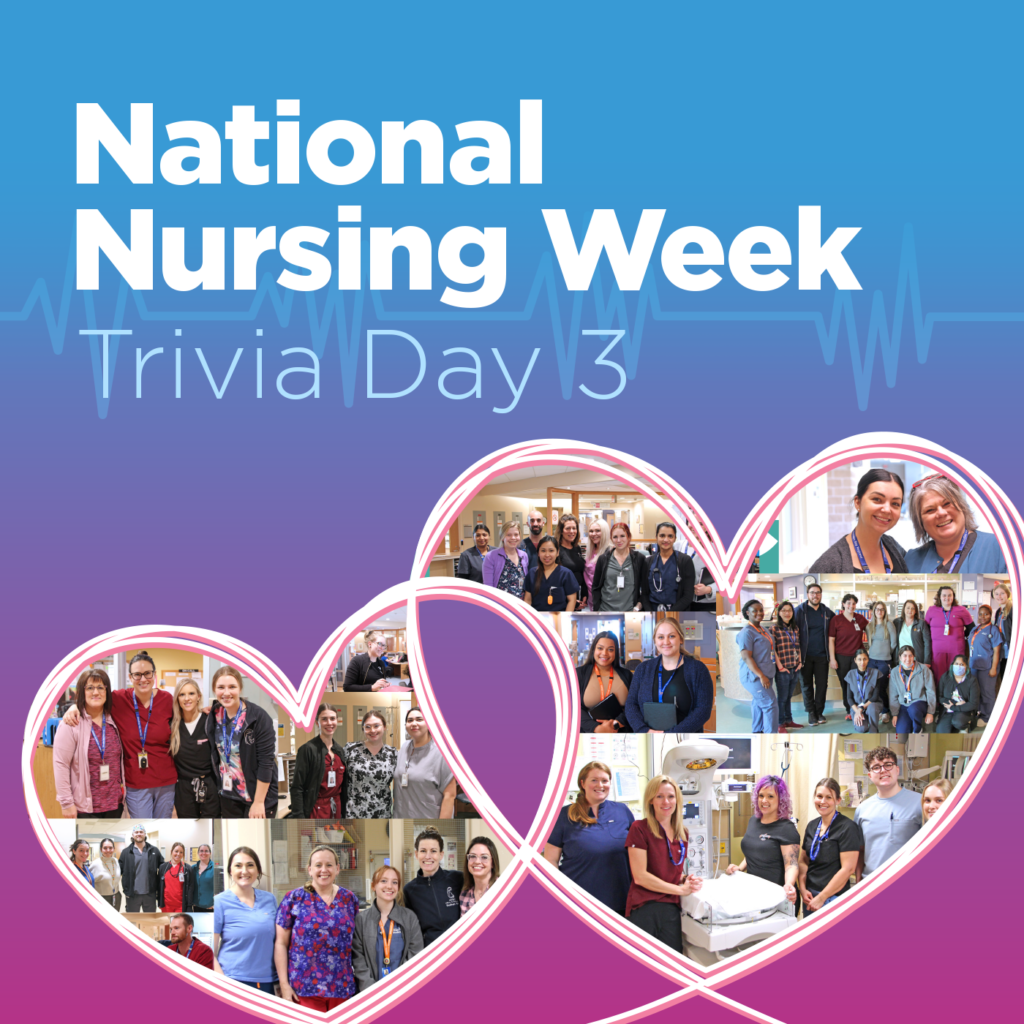
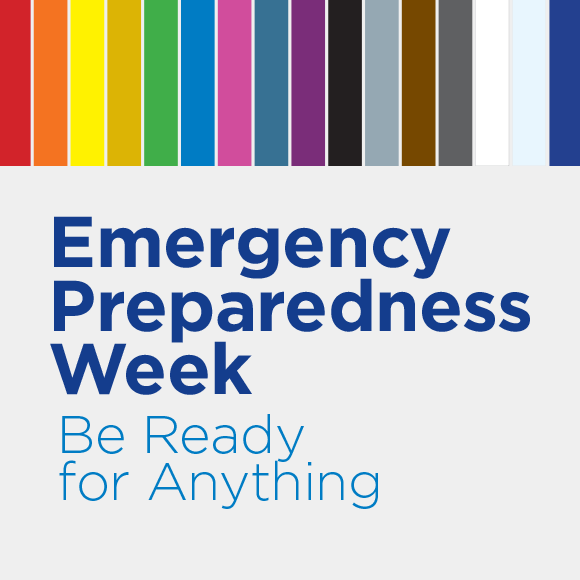
This week is Emergency Preparedness Week! This year’s theme is “Be Prepared. Know your Risks”. The intent of the theme is to encourage us all to understand the risks in our area and learn what actions we can take to protect ourselves, our families, and our community.
Here at TBRHSC we want to strive to continuously improve our level of organizational emergency preparedness. What can you do to help?
Photos above from 2024’s Minimum Staffing Drill.
If you have questions, please reach out to Mēsha Richard, Lead, Emergency Preparedness (ext. 6552 or mesha.richard@tbh.net)

Our Hospital is hosting a variety of local vendors just in time for spring. Visit the back of the Cafeteria (by the East Entrance) and the Main Lobby on Thursday, May 8, from 10:00 a.m. to 3:00 p.m.

Excited for a specific vendor? Check out the list below for where they will be located!
| Melissa Flemming | Main Lobby |
| Sleeping Giant Biscotti Company | Main Lobby |
| George Lone Elk | Main Lobby |
| Lori Sdao | Main Lobby |
| Debbie Linklater Baking | Main Lobby |
| Nancy Coaster | Main Lobby |
| Stitching Loops | Main Lobby |
| Afonso Creations | Main Lobby |
| Windy Shores Café | Main Lobby |
| Jessie Mandula | Main Lobby |
| Purple Moon | Main Lobby |
| Gems by Janine | Cafeteria |
| The Mitt Lady | Cafeteria |
| Ann Dick | Cafeteria |
| Nicole Kaukinen | Cafeteria |
| Shek Custom Bakes | Cafeteria |
| Emmie’s Bowtique | Cafeteria |
| Michelle Boucher | Cafeteria |
| Charlotte Etheridge | Cafeteria |
| Penny’s Sewing | Cafeteria |
| Pickled Pike Crafts | Cafeteria |